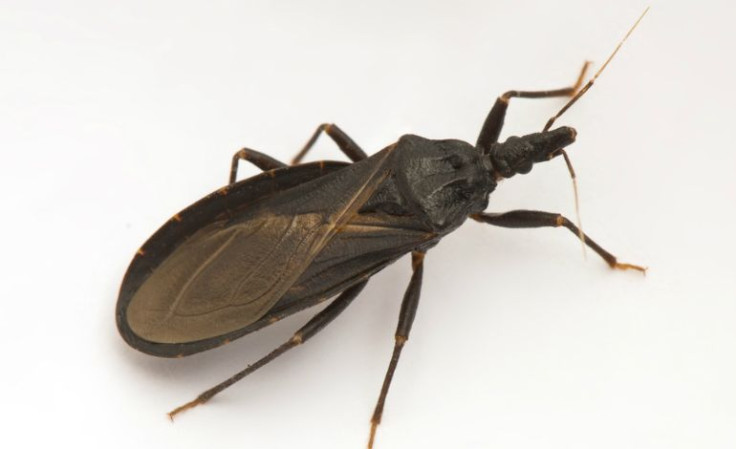
According to a new report, an exotic and deadly bug-borne infection known by the name of Chagas disease, is spreading in Texas. The Dallas Morning News reported that "one in every 6,500 blood donors in this state are infected with the disease, compared with one in every 27,500 donors across the country. " Here are some the things you need to know about this disease and about the insects that could transmit potentially the deadly infection.
UPDATE: The Centers for Disease Control and Prevention says in the United States the "kissing bug" has now been spotted in 28 states, and there are more than 300,000 people infected with Chagas.
1) Chagas disease is also known as American trypanosomiasis, is a parasitic disease that is spread mostly by insects known as Triatominae or "kissing bugs."
2) WebMd explains that the disease is spread when insects carrying T. cruzi are feeding on someone's blood, "an insect can drop their contaminated feces on the skin while they're feeding. This fecal matter can then enter the bloodstream through the bite wound, allowing the parasite to affect the heartand gastrointestinal system."
3) According to the WHO website, about 6 million to 7 million people are estimated to be infected worldwide, mostly in Latin America where Chagas disease is endemic.
4) They’re called the “kissing bugs,” because they often bite people on the thin skin around the eyes or mouth.
5) The disease is named after Carlos Ribeiro Justiniano Chagas, a Brazilian doctor who discovered the disease in 1909.
6) Acute phase lasts for about 2 months after infection, with non-specific symptoms.
7) In the chronic phase, irregularities of heart rhythm, heart failure, and blood clots cause weakness, fainting, and even sudden death.
8) Chagas disease can be transmitted through a blood transfusion, an organ transplant, ingesting infected insects, or eating raw food.
9) According to the SFU, the parasite that causes Chagas disease "is transmitted through fecal contamination rather than through the more efficient salivary gland transmission that occurs for other diseases."
10) The World Health Organization reported that this disease can be treated with benznidazole and also nifurtimox, stating that "both medicines are almost 100% effective in curing the disease if given soon after infection at the onset of the acute phase."
© 2025 Latin Times. All rights reserved. Do not reproduce without permission.




